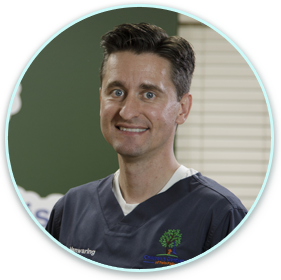
In Office Sedation
Imagine undergoing a complex dental treatment like a root canal, extraction, or oral surgery. When your treatment is complete, you have no recollection of the time it took, the pain, the noise or the discomfort you were expecting. We are pleased to offer our patients the option of comfortable, safe and effective sedation dentistry. Patients who benefit from sedation dentistry have:
- A fear or anxiety of being at the dentist
- A hard time sitting still for long periods of time
- A hard time getting (and staying) numb from anesthetics

What is Sedation Dentistry?
Sedation dentistry allows your doctor to provide a variety of dental treatments safely and comfortably for patients who experience anxiety when visiting the dentist. There are several benefits of sedation dentistry, including:
- No memory of undergoing the procedure
- No sense of time while under sedation
- No sense of smell or sound
- No fear or anxiety during treatment
Sedation dentistry is closely regulated by law, and there are three sedative states at which Children’s Dentistry can administer your treatment: mild sedation, moderate sedation, and deep sedation.
- Mild Sedation – Anxiolysis is the lightest form of sedation dentistry and is often used for patients with mild anxiety, longer procedures, or more complex situations. Usually administered orally, with mild sedation, you remain awake or very sleepy throughout the entire procedure and are able to breathe on your own, but you will feel a great sense of relaxation. Patients typically recover from anxiolysis sedation within a few hours after the procedure is complete. Nitrous oxide inhalation (laughing gas) is another form of mild to moderate sedation where you are very relaxed during treatment.
- Moderate Sedation – Used for patients with moderate dental anxiety and for patients who need longer or more complex procedures, conscious sedation often refers to the use of light oral sedation. With conscious sedation, your child will remain awake throughout your procedure but will be in a deep state of relaxation.
- Deep Sedation – This is not offered in a clinic setting. If deep sedation or general anesthesia is required, we recommend treatment be completed at a hospital or surgical center as a same day surgery.
How are sedatives administered?
- Inhalation – Nitrous oxide, or laughing gas, is the most frequently used method for easing mild to moderate anxiety. Recovery is quick, so you can resume your normal activities immediately.
- Oral – An extremely common technique for dental sedation is oral sedation. It’s easy and doesn’t require the use of needles. Cherry flavored medication based on your child’s weight is administered in the clinic. 20-30 minutes later, your child will be relaxed and able to tolerate required dental treatment.
What does it mean to be a Sedation Certified and Licensed Practitioner?
A dentist who is Sedation certified and licensed to administer oral conscious sedation has received additional specialty training and has been legally certified by their state’s Board of Dental Examiners to deliver medical drugs that alter a patient’s consciousness for comfortable, relaxed treatment.
Please contact our practice to schedule a consultation, learn more about sedation dentistry, and find out which sedation dentistry method is right for you.




